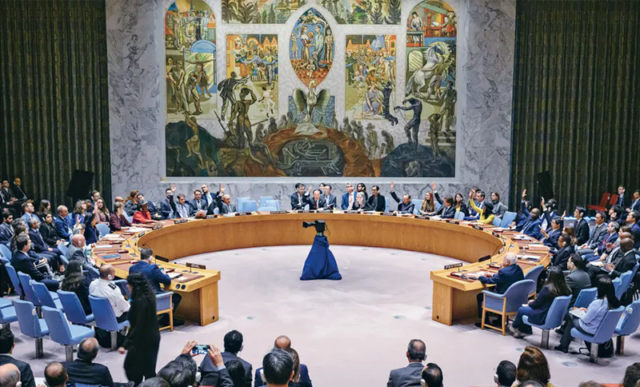Beijing’s Supervision Law Overhaul: Proposed Amendments Push Extraterritorial Anti-Corruption Enforcement
By:

Executive Summary:
- The People’s Republic of China’s (PRC) proposed amendments to the Supervision Law aim to strengthen the National Supervision Commission’s (NSC) authority, particularly its ability to conduct extraterritorial anti-corruption enforcement.
- The amendments align with Xi Jinping’s “foreign-related rule-by-law (涉外法治)” concept, extending PRC legal and governance frameworks to international jurisdictions. The NSC’s evolving role, guided by the Central Commission for Discipline Inspection (CCDI), reflects the Chinese Communist Party’s (CCP) broader strategy to expand state power and law enforcement beyond PRC borders, particularly over PRC entities and citizens abroad.
- These changes are aimed at expanding the PRC’s ability to deepen law enforcement overseas, with a focus on protecting the PRC’s broadly defined national security and interests, particularly in Africa, Central America, Central Asia, the Middle East, Southeast Asia, and in “One Belt One Road” partner countries where PRC entities and citizens operate.
On September 10, the National People’s Congress (NPC) of the People’s Republic of China (PRC) convened to discuss proposed amendments to the Supervision Law (监察法) (Xinhua, September 10). Initially introduced in March 2018, this law, known colloquially as the “anti-corruption law”, established the National Supervision Commission (NSC) as the PRC’s highest anti-corruption agency (NPC, March 20, 2018; Library of Congress, January 10, 2020). In practice, the NSC’s mandate is to extend the power of the Chinese Communist Party’s (CCP) internal discipline enforcer, the Central Commission for Discipline Inspection (CCDI), into non-Party corners of the government, state-owned enterprises, other state-run entities such as research institutions, and “personnel who perform public duties” (CCP Watch, July 15, 2019).
The amendments focus on four main areas, according to official PRC media. These include improving general principles of supervision, enhancing supervisory measures and procedures, increasing international cooperation, and strengthening the internal capabilities of supervisory agencies (referred to as “self-construction (自身建设)” (Legal Daily, September 11).
Of these proposed amendments, the expansion of international anti-corruption work is the most likely to have implications beyond the PRC’s borders. The proposed revision to Article 51, which outlines the NSC’s role in international anti-corruption cooperation, is particularly significant. The amendment specifies that the NSC will work with “relevant units (有关单位)” to strengthen judicial and law-enforcement collaboration on issues such as extradition, judicial assistance, repatriation, joint investigations, asset recovery, and information exchange (NPC, September 17). The term “relevant units” is common CCP jargon and is intentionally ambiguous, allowing the government to define it as it deems necessary.
The amendment’s elevation of judicial and law enforcement cooperation through the NSC and “relevant units” appears mild, but it signals a potential intensification and expansion of the PRC’s anti-corruption activities in other jurisdictions, including the special administrative regions of Hong Kong and Macao. Official media has highlighted the proposed change, which builds on earlier statements by NSC head Liu Jinguo (刘金国) to representatives from “One Belt, One Road” (OBOR) countries that the PRC seeks to deepen external anti-corruption efforts within OBOR projects and investments (Xinhua, October 18, 2023). Since 2021, the CCDI has embedded personnel within state-owned enterprises operating overseas in preparation for targeting OBOR projects (The Strategist, April 17). The close relationship between the CCDI and the NSC is reflected in Liu’s dual roles as CCDI deputy secretary and NSC director. Liu also serves as one of the seven secretaries (书记) of the CCP Central Committee Secretariat, which is led by Xi Jinping and is responsible for implementing Party policies across the bureaucracy.
The expanding reach of the CCDI-NSC’s extrajudicial anti-corruption bureaucracy has been documented in Europe, anchored in part by an 2019 agreement with the United Nations Office on Drugs and Crime (Safeguard Defenders, April 16). PRC official reports trumpet the achievements of the PRC’s “long-lasting” anti-corruption campaign, which has expanded to cover additional sectors, behaviors such as bribery, and more overseas jurisdictions (Xinhua, December 28, 2023; Global Times, March 20). Key among the CCDI’s activities is the forced return of individuals accused of economic crimes—one of the agency’s core mandates—via operations such as Sky Net and Fox Hunt. These operations are global in scope, facilitated by a network of extralegal agents and unofficial overseas police stations (Department of Justice, October 28, 2020; US-China Economic and Security Review Commission, December 2023).
Xi Jinping’s broader policy push to establish a “foreign related rule-by-law (涉外法治)” system capable of exerting state power beyond the PRC’s borders, continues to drive these efforts (People’s Daily, November 18, 2020). Regardless of the specific language the NSC adopts in the course of amending the Supervision Law, the inclusion of an “international cooperation” dimension confirms that CCDI-NSC activity will consistently focus on expanding overseas operations, irrespective of whether or not non-PRC institutions participate. At a September 2 meeting on training “foreign related rule-by-law work teams,” Central Political-Legal Affairs Commission secretary Chen Wenqing (陈文清) tasked attendees with creating a “large coordinated pattern of foreign related rule-by-law work (涉外法治工作大协同格局)” involving “international exchanges and cooperation” (People’s Daily, September 3). A week later, at the 2024 Global Public Security Cooperation Forum, Minister for Public Security Wang Xiaohong (王小洪) highlighted the PRC’s commitment to deepening law enforcement and security cooperation with countries in Africa, Central America, Central Asia, the Middle East, and Southeast Asia (People’s Daily, September 10).



